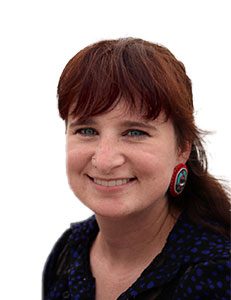From Duck Tacos to creamy wild rice spruce tip soup, Stephanie Baryluk, Vancouver’s Gwich’in Chef and food educator, has been making mouths water across the country and internationally with her Indigenous cuisine, education and values.
“I think the biggest thing is connection through food,” says Baryluk. “Sometimes we get lost in … not really giving the appreciation to the ingredients, how they’re collected harvested. I think we need to get back into doing that.”
Based at Simon Fraser University (SFU), she created the Rooted Indigenous Foods Program and Rooted Menu. Basing it around her Gwich’in community’s knowledge passed by her Elders from the small Western Arctic community of Teetl’it Zheh (Fort McPherson), her efforts have been taking her around the world.
“Foods have always been a big part of my life growing up in the north with a big family … seeing how my community gathers around food,” she says. “Leaving my community, living in a city, I always miss the food from home … and I knew I wanted to do more with Indigenous cuisine, Indigenous culture, I wanted to share who we are as Teetl’it Gwich’in people.
“I don’t like to just present you with a plate of food, I think you need to know about the ingredients, where they were harvested. When I cook there’s usually a story behind the dish.”
Baryluk incorporates different cultures in her recipe. Her wild rice soup with spruce tips mixes ‘Dineedzil,’ the Teetl’it Gwich’in word for spruce cone with ‘Minoomin,’ or rice in Ojibwe/Anishinaabemowin from northern Ontario.
“Chef Steph’s awesome,” says colleague Adriel Lee, executive chef at SFU describing the creation of the Indigenous foods program. “She was so impactful on the team that we just had to bring her on board full-time.”
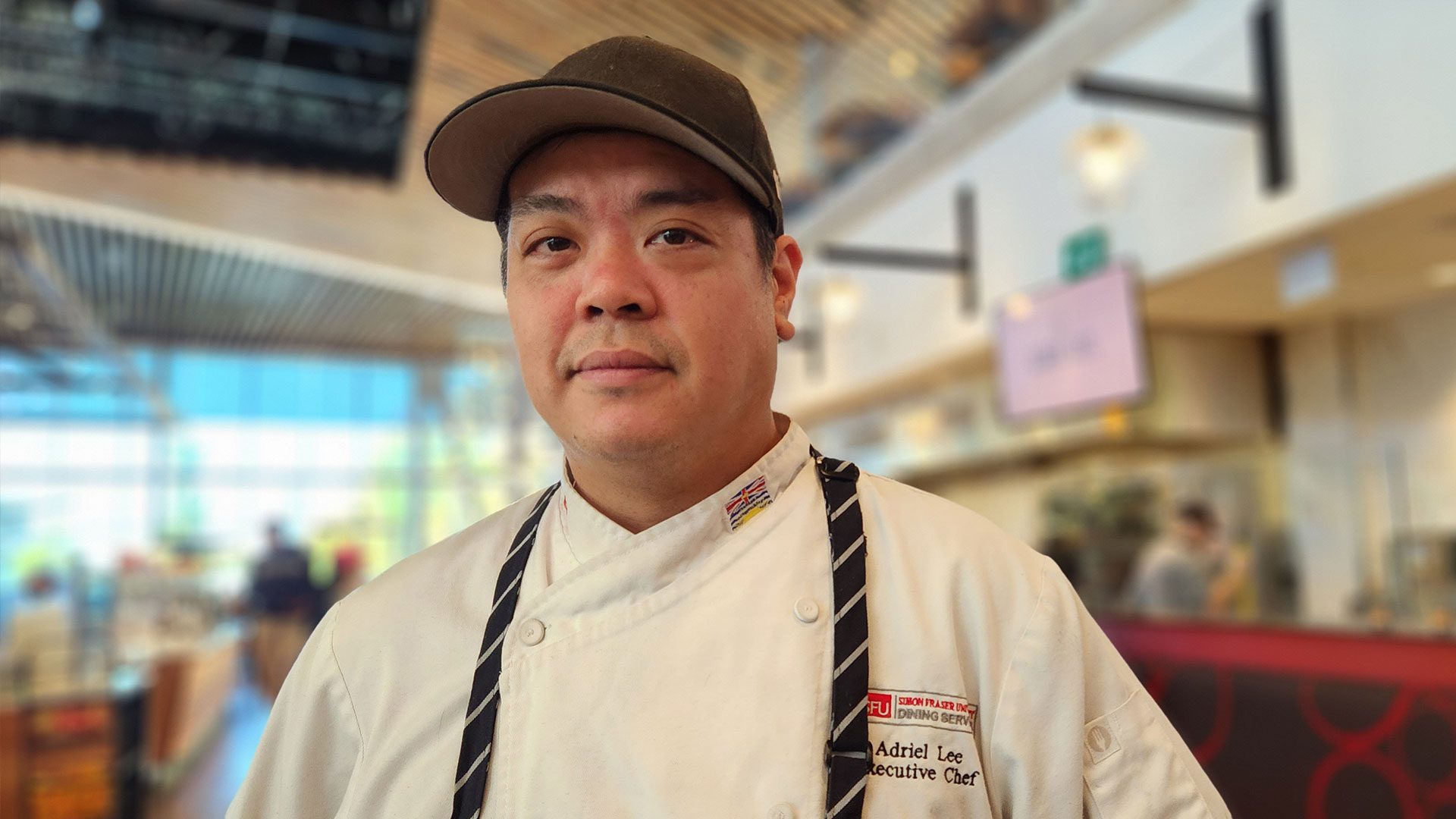
“We have people coming in asking for [the menu] specifically, even on days where we are not normally offering it,” he says. “Food is very ingrained in the culture and the way that she talks about her dishes, it really tells a story, and for me, that is very important.”
Baryluk’s passion has led to invitations to present her menus, speak on panels, and facilitate workshops twice in Rome. She also spoke recently at the United Nations Food and Agricultural Organization’s Global Indigenous Youth Forum. The goal of the forum was to address the future of Indigenous people’s foods and knowledge systems in the face of climate change.
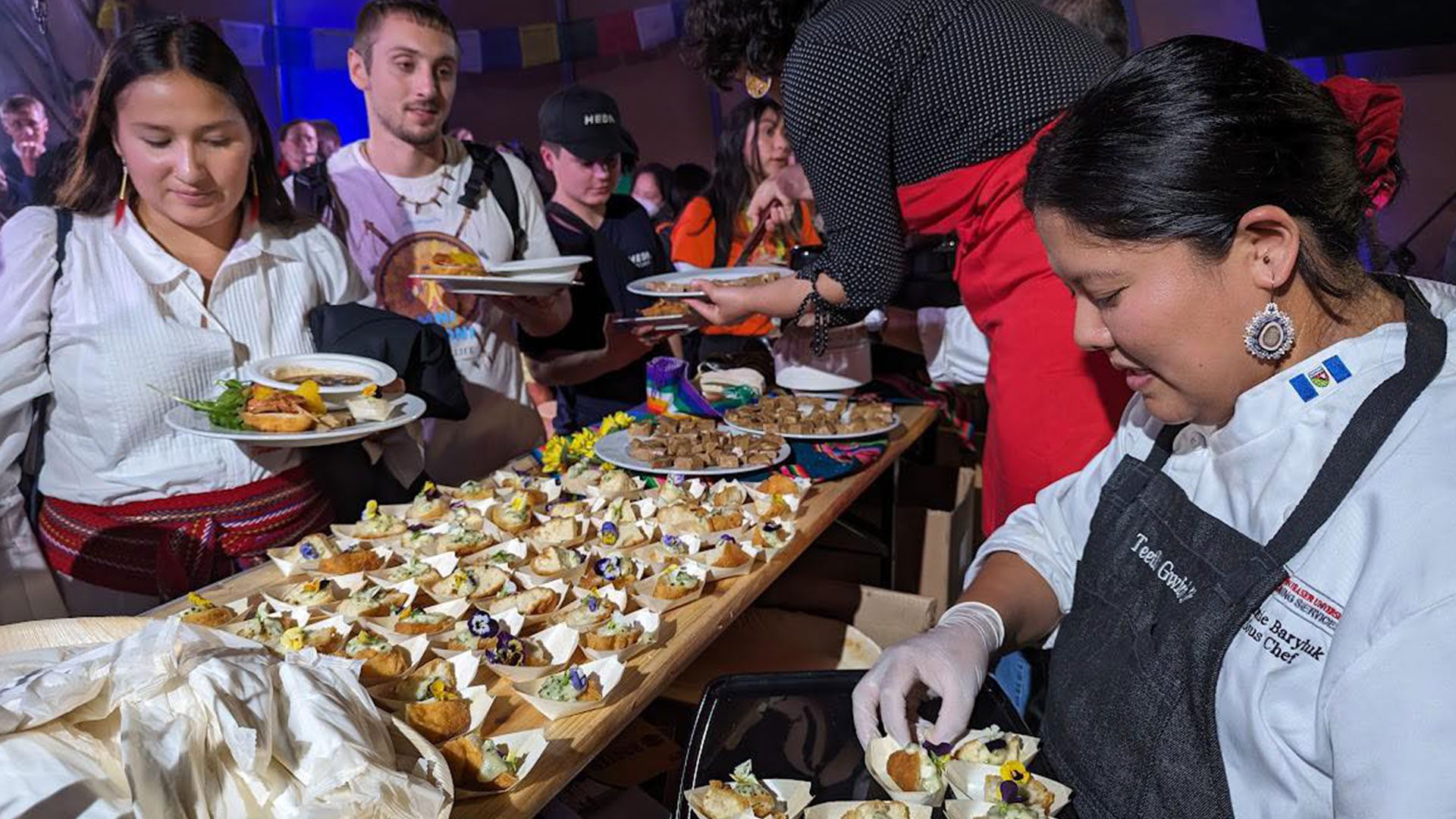
“It’s made me realize that this work is more meaningful than just work to me,” says Baryluk.“It’s a chance for me to share who we are, it’s a chance for me to bring my community some pride in our culture, and to share it with the world. I think a lot of the issues these days with food security, food sovereignty and food waste, Indigenous people have a proven record of what works.
“Respectfully harvesting or only taking what you need … one of the things with the Porcupine Caribou Herd is ‘letting the leaders pass’”.
Baryluk points to the Gwich’in value and rules of harvesting and preserving the ‘Vadzaih’ or caribou, which travel across the N.W.T., Yukon, and Alaska. Not harvesting the migrator leader, or letting the leaders pass is one of the traditional ways of preserving.
“We have a lot to learn from Indigenous people about what works and we need to listen,” she says. “When I have these opportunities … I need to remember where I come from. Letting the leaders pass is a lesson of respect. We’re sharing culture and traditions.
“You’re learning about our history, what works, and our stories, and can continue to live.”
Staying connected and supporting from afar through Mrs. B’s Jerky
During the pandemic in 2022, Baryluk, homesick, decided to start making ‘Nilii Gaili’, or dry meat with what beef ingredients she had. She sent the food home. The hobby took off immediately across her home region of the Beaufort Delta. A childhood friend, Janelle Wilson now living in Inuvik, helps sell her Mrs. B’s Jerky.
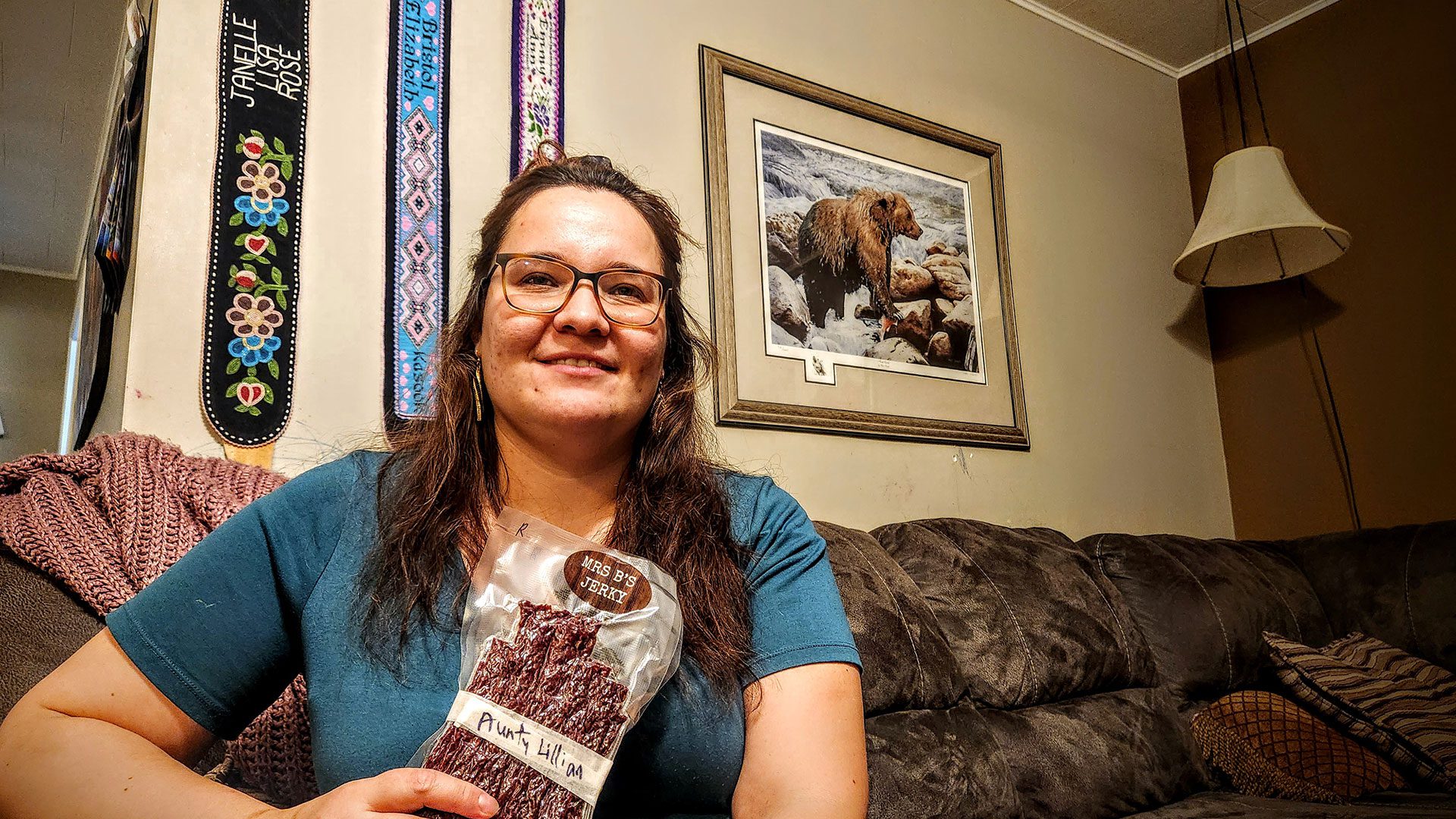
“She’d send up a bin full of the jerky she made all labeled… put it on Facebook … and it just sold,” says Wilson whose last batch of 200 sold in a few days. People liked it, so and then they kept buying more. Just selling it all so quickly and like getting the random messages if there’s any available … people randomly saying, ‘Man, I wouldn’t mind for Mrs. B’s jerky’, in itself it’s saying it’s so good.”
Baryluk says it was one of her best decisions to make a career shift into culinary school and it is why she is passionate about inspiring others.
“It’s a chance for me to show other Indigenous cooks and chefs that we could do these things, we belong in these spaces,” she says. “For anybody who’s struggling, that change is possible, we can make these opportunities, and we could do a good job doing it.”
Inspiring other Indigenous food leaders
Baryluk’s work has inspired young people like her niece, now in culinary school at Edmonton’s Northern Alberta Institute of Technology (NAIT).
“She’s one of my inspirations,” says 20-year-old Rhianna Firth, also from Teetl’it Zheh (Fort McPherson), a hamlet just over 500. “I think it is so inspiring, showing everybody she comes from a small town, and she’s out here doing bigger things, like traveling to Italy and then sharing her perspective on our culture.”
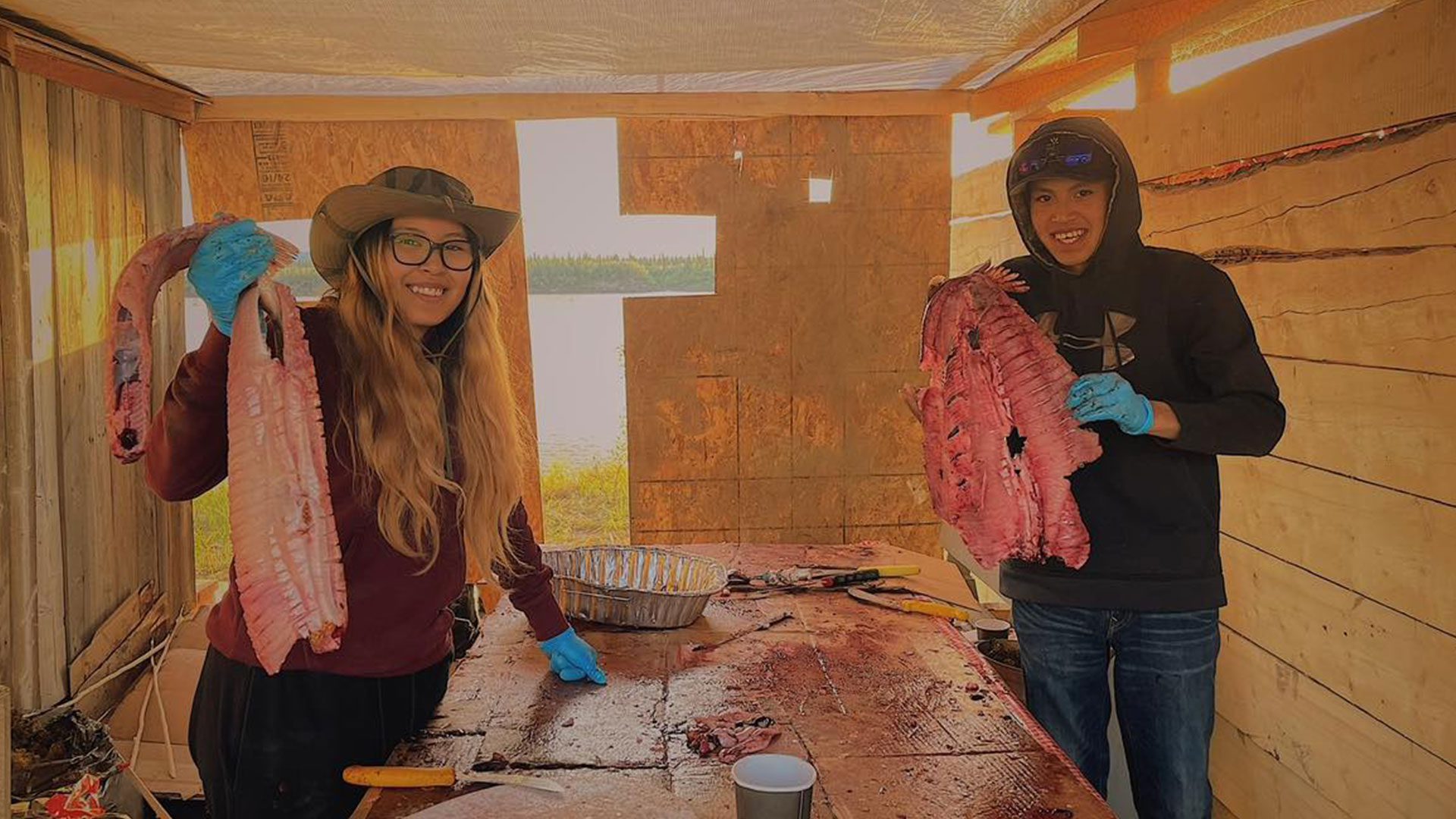
Currently learning business skills, Firth says she hopes to start her own food business back home where there is little to no food industry in the region because of high food prices and a lack of housing. The regional communities also get disconnected twice a year during ice break-ups and freeze-ups, and where only planes hauling cargo and passengers drive prices higher. However, Firth is optimistic there is demand.
“I think opening a restaurant right now is in such high demand … so I think no matter what your price, people will buy, especially if a local business.”
Like Baryluk, Firth says she’s invested, not just in providing any kind food, but that is rooted culture, tradition, and local harvesting that helps to reduce food insecurity.
Firth encourages others to take a chance.
“It is hard being so far away from home but then also you have so much people behind you, that are so proud of you,” says Firth. “It just feels good to be doing something, it just makes you feel so productive … it just makes you feel so good once you’re done.”
Starting Feb. 5, Baryluk says she’ll be providing weekly Monday community kitchen classes in Vancouver’s Downtown East Side at Sheway: Vancouver Aboriginal Health Society.
Then in early March, she’ll be hosting an Indigenous-inspired reception in Austin, Texas for the South By South-West Film and TV Festival.




